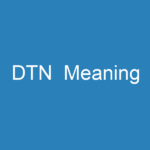DWU stands for ‘Don’t Wait Up’.
This phrase is commonly used in digital communications to convey the message that someone should not stay up waiting for the person to return or contact them. It implies that the person will be busy or out for an extended period.
What does DWU mean in texting?
In texting, “DWU” is often used to inform someone that they’ll be occupied for a while and it’s unnecessary for the other person to stay up or wait for their call or message. This could be due to late-night activities, being out with friends, or being engaged in work or study. It’s a considerate way to let someone know not to worry or alter their routine on your account.
What does DWU mean on Instagram?
On Instagram, “DWU” might appear in direct messages or comments, typically in casual conversations. Here, it can have a similar meaning as in texting, used to inform friends or followers not to expect immediate replies or interactions, especially during evenings or when someone is engaged in social events or activities that might keep them busy.
What does DWU mean on Snapchat?
In the context of Snapchat, “DWU” is used in a similar way to texting and Instagram. However, given Snapchat’s emphasis on real-time sharing and updates, “DWU” might also be a quick way to inform friends that the user won’t be responding to snaps or messages for a certain period, usually due to being engaged in activities or events where they cannot or prefer not to use their phone.
Ideas on how to respond to ‘DWU’ sent by a boy
- Acknowledging Respectfully: “Thanks for the heads-up! Have a great time!”
- Light-Hearted Response: “Alright, no late-night spying for me then 😄 Enjoy!”
- Showing Interest for Later: “Cool, tell me all about it tomorrow!”
Ideas on how to respond to ‘DWU’ sent by a girl
- Playful Flirtation: “Guess I’ll just dream about your adventures then 😉 Have fun!”
- Showing Care and Interest: “Thanks for letting me know! Take care and we’ll catch up soon.”
- Casual and Friendly: “Got it, don’t have too much fun without me! 😊”
These responses cater to different levels of familiarity and relationship contexts, allowing for appropriate and considerate communication.



